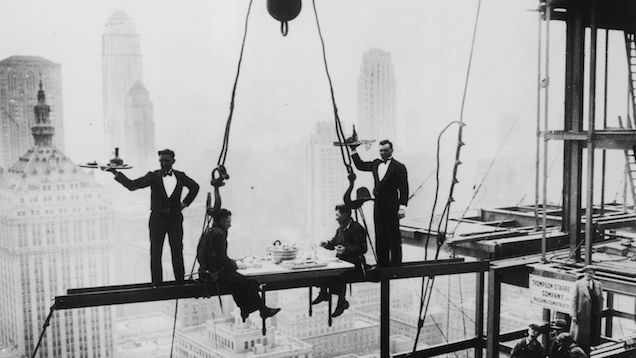
Having a trauma free life can be bad for your health. Too many people are experts at success, but amateurs at failure.
This trait can be deadly for an investor.
On any given day, it is no more than a flip-of-a-coin probability that a positive market close will result.
Markets tend to fall in one out of every three years. Studies have proven investors are bothered twice as much by losses as they are elated by gains, dampening the impact of this winning percentage.
Markets tend to have annual corrections of at least 10%. Sometimes this happens more than once in a 365 day period.
There is an excellent chance that at least once in an investor’s lifetime, they will see their portfolio plunge 50% or more. In fact, this has happened twice in the last 16 years!
Star fund managers tend to blow up at some point, leaving the ashes of investors’ portfolios as proof of their hubris (the once famed investor Bill Miller and, to a lesser extent, PIMCO’s Bill Gross come to mind.)
Sectors fall in and out of fashion, such as technology in the 1990s; real estate, in the early part of the decade; and, recently, commodities. Plenty of people lost their shirts making concentrated bets.
Investors need plenty of GRIT. This is the ability to get back up after being knocked down. Few desirable traits for investors are more valuable than this.
Unfortunately, some investors are what can be called “Fragile Perfects.”
They often come from the ranks of class valedictorians, prodigies of the arts, or star athletes.
Many have never tasted the bitterness of defeat. When bad news finally arrives on the door step, they go down, but don’t know how to get back up.
I saw this many times during my twenty years as a public school teacher. Kids that received less than their standard “A” often broke down in tears.
In one particular case, I saw one of my students hysterically crying in the hallway. She was surrounded by some of her girlfriends and the inevitable domino effect happened; they started crying also!
Immediately I was filled with terrifying thoughts: Death of a loved one? The diagnosis of a fatal disease? These were just some of the twisted ideas racing through my brain.
Tentatively, I approached her asked about the reason for the group waterworks. “What’s wrong? Can I help?”
She looked at me and tragically said, “I received a 70 on my science quiz!”
WTF! I was always known for my bluntness and I just reflexively blurted out. “You have to be kidding me! You are just a big CRY BABY!”
To my amazement, she looked straight at me and burst into uncontrollable laughter! Mission accomplished: Reality check delivered flawlessly.
For all you PC police out there, I became this girl’s favorite teacher. She would visit me every year, even when she was in college. She told me her parents thought that was a terrific wake-up call.
A low quiz grade is a small price to pay for a fragile perfect personality. The costs to investors run much deeper.
Investors need to develop a growth mindset rather than the fixed version. This gives market participants the ability to get off the mat, rather than lie there paralyzed by fear.
Take the story of Bill McNabb, the current CEO of mutual fund colossus, Vanguard.
While in school, McNabb was deemed to be naturally gifted at academics. By his own admission, school work came pretty easily to him. He did pretty well without giving much of an effort.
Then came the college crew team; he loved it, but was not very good.
He was relegated to a permanent spot of insignificance on the Junior Varsity team.
Bill McNabb had a stunning realization: Sometimes in life things do not come easy. There are fields where people have way more ability than you. The only solution for the deficiency is hard work and grit.
This attitude adjustment benefitted McNabb. His hard work and determination paid off when a varsity player was injured and he filled in with flying colors: Lesson learned.
A leader with a fragile, perfect personality could never have led Vanguard to the position of power it currently occupies in the fund industry.
Investors need to realize I.Q.s are not fixed. The thought pattern that tomorrow will be better than today is essential for investing success.
Studies have proven that suffering without any semblance of control can lead to enormous health issues. These include depression, loss of appetite, and sleep disorders.
Does this sound familiar? Think of your reaction during the worst of the 2008 bear market.
Investors who have a fixed mindset combined with a fragile perfect personality need to get help, and fast.
Optimism can be learned just as easily as pessimism.
Quite frankly, if you don’t believe tomorrow will be better than today, you have no business investing in the stock market anyway.
Source: Grit: The Power of Passion and Perseverance by Angela Duckworth






[…] The curse of fragile perfection (A Teachable Moment) […]
[…] for you. At times you have to accept small regrets in order to avoid large ones. As my colleague Tony Isola said recently, “too many people are experts at success, but amateurs at […]
[…] The Curse of Fragile Perfection […]